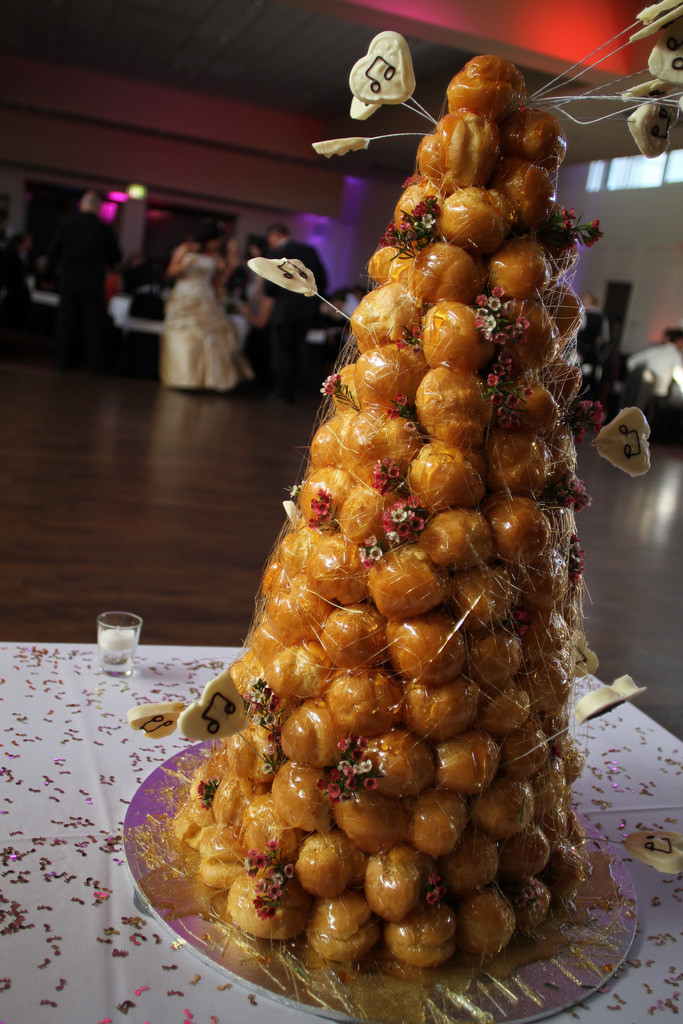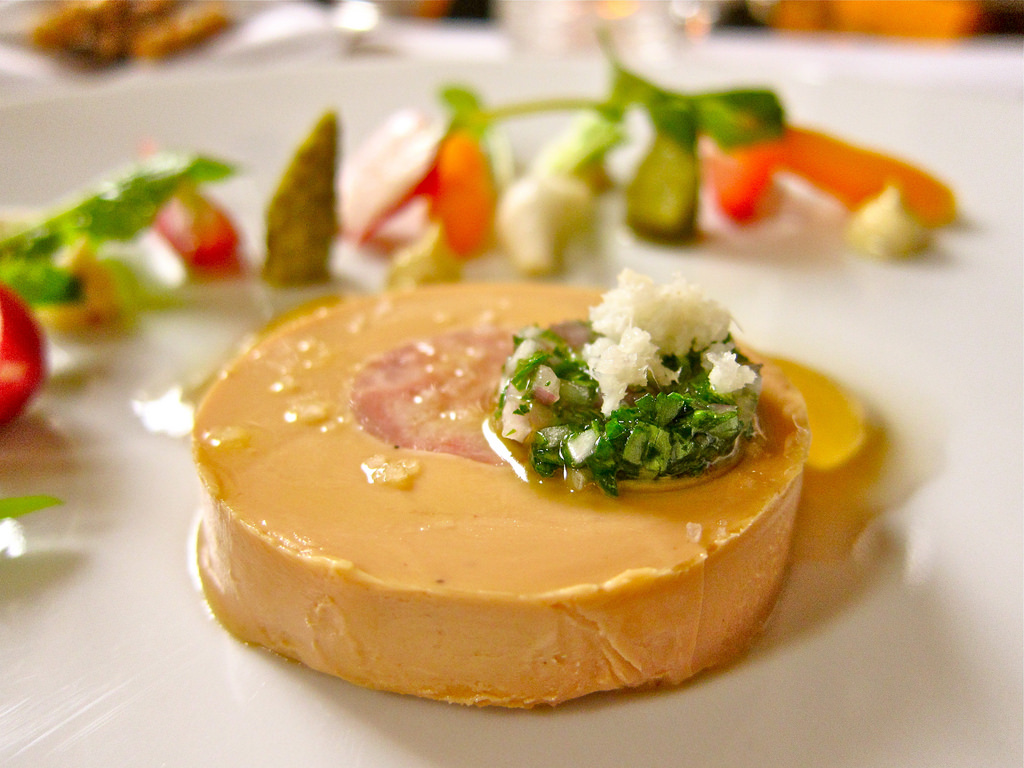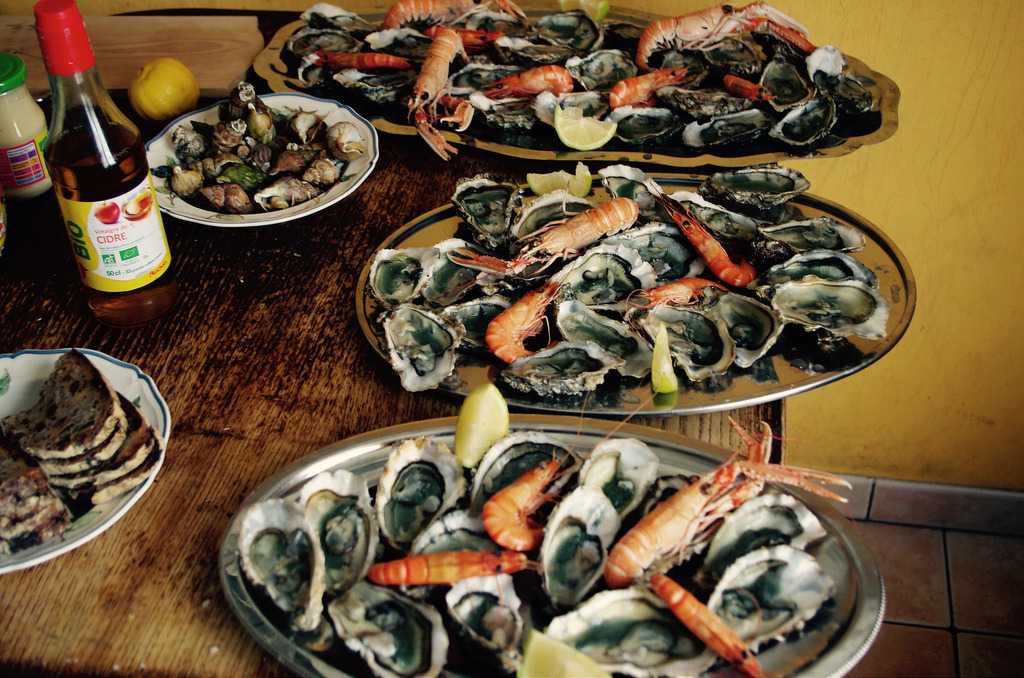Food and Drink: Special Occasion Foods
France is historically Christian, although today it is much more secular and immigrants have brought a diversity of religious customs into the country. Even so, several important Christian holidays, such as Christmas, Epiphany, and Easter, remain important, particularly for their culinary traditions.
Christmas
Christmas is traditionally the birthday of Jesus Christ, celebrated on December 25. In France, much of the celebrating takes place on Christmas Eve. Traditional foods served include chestnut dressing, foie gras, seafood dishes, and a bûche de Noël, a traditional sponge cake or sweet roulade similar to the British Yule Log.
New Year’s Eve
In France, New Year’s Eve is called Saint Sylvestre Day, because December 31 happens to be the feast day of Saint Sylvestre. During this holiday, a feast is thrown that includes dishes similar to those eaten at Christmas, such as foie gras and seafood. Oysters and champagne may also be served. Glace, or ice cream, is traditionally eaten the day after, on New Year’s Day.
Epiphany
Epiphany, which takes place on January 6, celebrates the three Wise Men who visited Jesus in his stable. It is also known as Jour de Rois (Kings’ Day). During this day, la galette de rois (the cake of kings) is served. This cake consists of two sheets of puff pastry filled with almond paste. A small china doll is baked into the cake; whoever finds it becomes the “king” or “queen” and wears a gold paper crown. The position can last for as long as two weeks.
Easter
Easter takes place in the spring to celebrate Jesus’ resurrection. In the French tradition, a winged bell delivers baskets of chocolate chickens and eggs to children. Many families eat a large meal at noon that includes rabbit or a leg of lamb.
Weddings
French wedding meals are often multi-course affairs that include hors d'oeuvres, salads, heavy main dishes such as beef burgundy and coq au vin, and dessert. A croquembouche, a pyramid of small cream puffs held in place with caramel binding and spun sugar, is a traditional French wedding cake.
Article written for World Trade Press by Linda Williams.
Copyright © 1993—2024 World Trade Press. All rights reserved.

 France
France 

